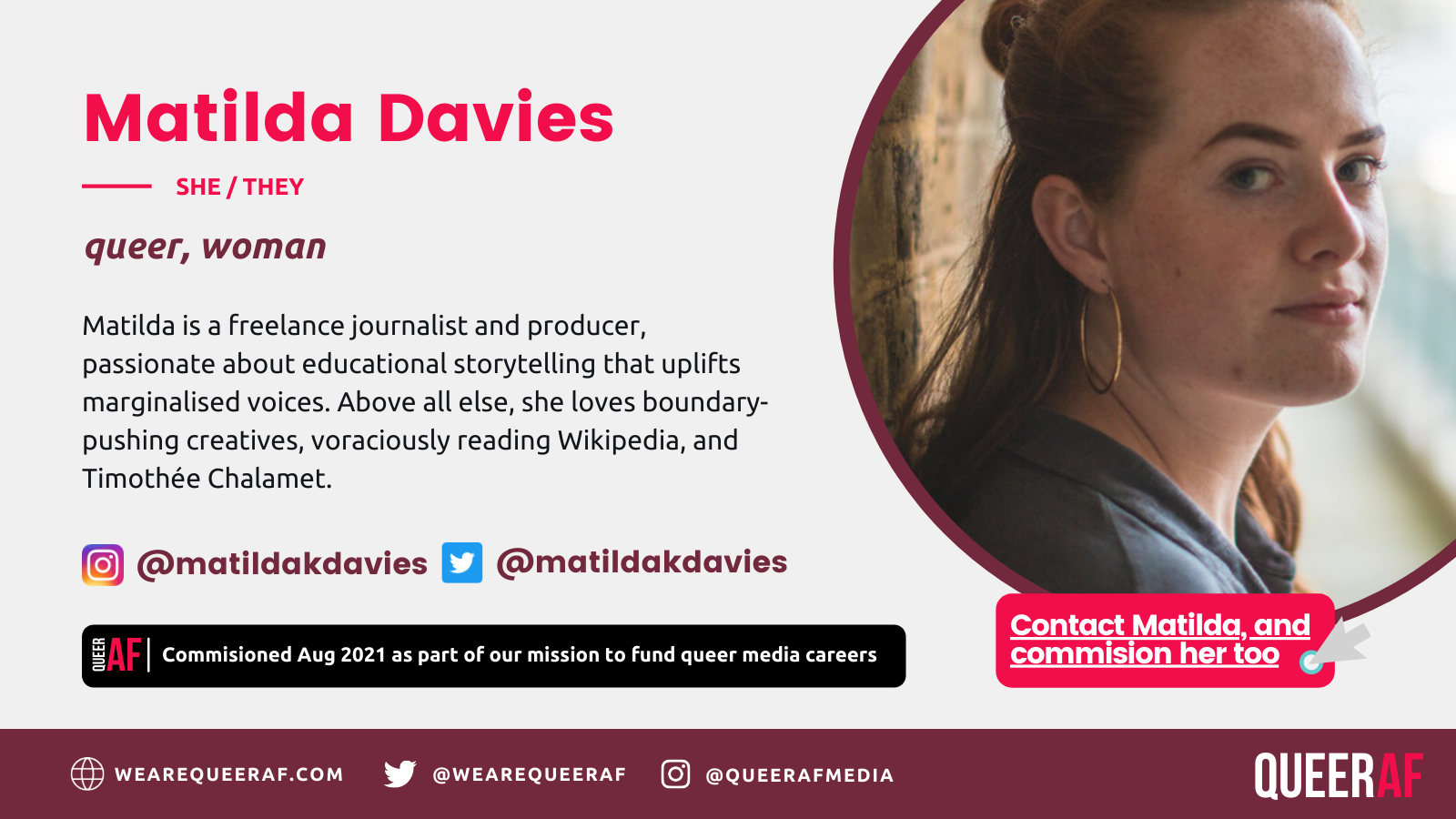
This week, Ryan Murphy’s TV shows received nine Emmy nominations. MJ Rodriguez even became the first trans woman nominated in a major category, for Murphy’s Pose. That makes the total nominations for his shows a whopping 236.
I’m a huge Ryan Murphy fan, and I’m in good company. Netflix has essentially given Murphy a blank cheque to create whatever he wants. And I have praised him for bringing queer stories and creatives into the mainstream. Indeed, for giving sorely needed airtime to LGBTQ+ women.
But despite his opulent, fantastical worlds of larger-than-life characters - they actually couldn’t feel further from my life and experiences.
However, when I first saw Mae Martin’s Feel Good, I watched the whole two-season show three times from start to finish within two weeks.
Instead of the popular cheerleader (Glee), the manipulative femme fatale (Ratched), or the privileged activist (The Politician) - Feel Good gave me something I recognised.
I identified with Mae’s struggles with addiction, trauma, gender identity, familial relationships, romance, and friendship. Mae’s semi-autobiographical show even prioritised marginalised genders right down to the soundtrack.
I felt seen, understood and represented. I hadn't realised until then, how important that was.
And yet, despite writing a feature about Martin, the Emmys didn’t nominate Feel Good. Martin was nominated for one BAFTA, in a ‘female performance’ category, even though the show explores that Martin doesn’t actually identify as female.
Once again, it feels like the shows written by queer women and non-binary people just don’t receive the same glory (or financial backing) that Murphy’s shows do, despite their profound effects on viewers like me.
Having female and non-binary characters written by people with that lived experience makes a huge difference. LGBTQ+ women and non-binary people shouldn’t have to simply find scraps of representation in Murphy’s back catalogue, an angsty period drama, or The L-Word.
We deserve better, we deserve more, and we deserve to write our own stories.
This content was funded by our members and produced by an emerging queer creative.
You can support them by, following their work, hiring them or becoming a QueerAF member and directly fund more of their incredible storytelling.
We are QueerAF, and so are you.












